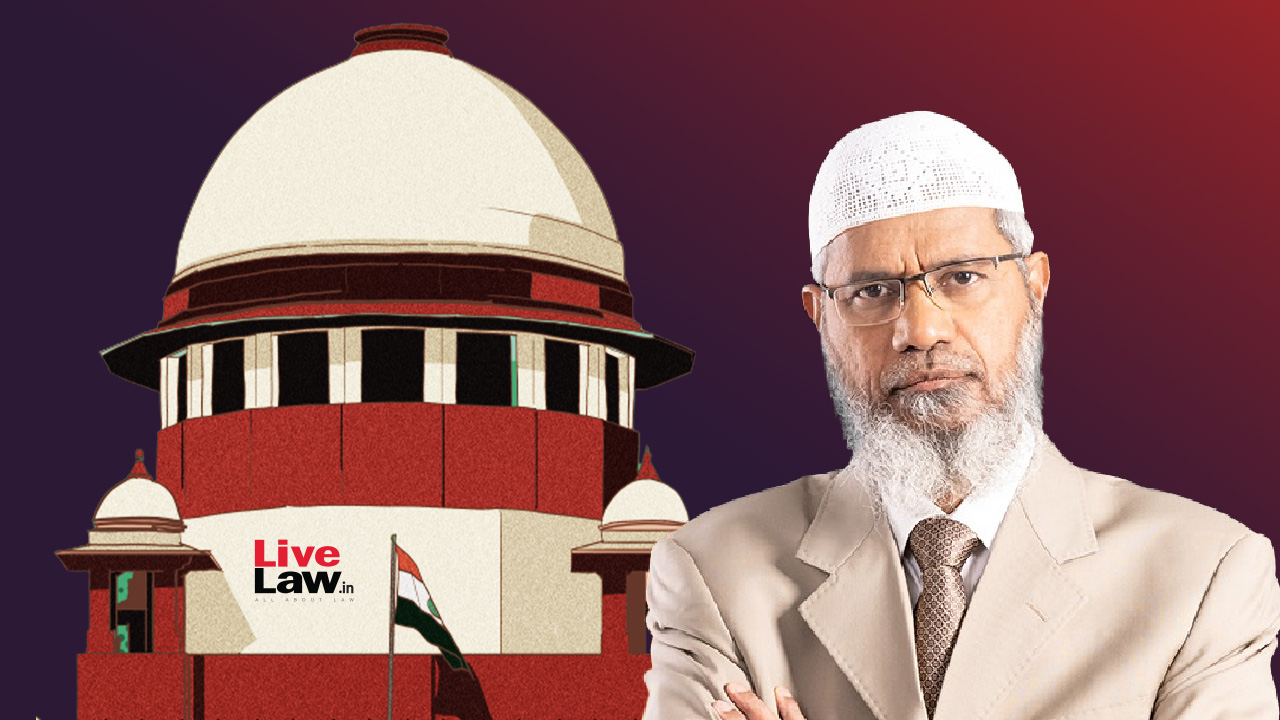 |
|
The Supreme Court of India grappled with the legal implications of fugitive status on Wednesday, October 16, 2023, as it heard a writ petition filed by Islamic preacher Zakir Naik, who seeks to consolidate various First Information Reports (FIRs) lodged against him in Maharashtra and Karnataka. These FIRs allege that Naik, a controversial figure known for his inflammatory speeches, violated Section 153A of the Indian Penal Code (IPC) by promoting religious animosity and undermining communal harmony.
The Solicitor General of India, Tushar Mehta, representing the State of Maharashtra, raised a significant objection regarding the maintainability of Naik's petition. He argued that Naik, who has been declared a fugitive by Indian courts, cannot avail himself of the fundamental right to seek redress under Article 32 of the Constitution, which guarantees the right to directly approach the Supreme Court for enforcement of fundamental rights. This argument hinges on the principle that an individual must be present within the jurisdiction of the court to exercise their legal rights.
The Supreme Court bench, presided over by Justice Abhay Oka, Justice Ahsanuddin Amanullah, and Justice Augustine George Masih, recognized the weight of Mehta's contention and allowed the State of Maharashtra to file a counter affidavit to formally present this objection. The court indicated its willingness to consider the issue of maintainability, suggesting that it would determine whether a fugitive can indeed utilize Article 32 as a legal avenue to challenge the FIRs against him.
During the hearing, the bench sought clarification on the status of the cases filed against Naik. Senior Advocate Aditya Sondhi, representing Naik, disclosed that a total of 43 cases are pending against his client. The Solicitor General, however, expressed his belief that Naik intended to withdraw the petition altogether. Sondhi countered that he had received no such instructions from his client, adding that the petition's withdrawal could be considered if the Supreme Court granted liberty to Naik to approach the concerned High Courts for quashing the remaining FIRs. These FIRs—four in Maharashtra and two in Karnataka—remain unresolved.
The Solicitor General emphasized that Naik's fugitive status poses a significant obstacle to his ability to participate effectively in legal proceedings. He highlighted that Naik's absence prevents him from providing instructions to his legal representatives and effectively challenging the accusations against him. Furthermore, the Solicitor General pointed out irregularities in the petition's presentation, such as the lack of Naik's signature, which further compromises its legal standing.
The court, while acknowledging the registry's concerns regarding the petition's defects, declined to waive any objections raised. However, it allowed the Solicitor General to file his counter affidavit, signaling that the court is prepared to rigorously examine the case on its merits, including the maintainability issue. The court also requested an affidavit from Naik to ascertain his intentions regarding the petition's withdrawal. The matter has been adjourned until next Wednesday, giving the respondents an opportunity to present their arguments and counter-arguments.
The Zakir Naik case underscores the complex interplay between legal procedures and fugitive status. The Supreme Court's decision in this case will have broader implications for how the legal system handles petitions filed by individuals who have absconded from justice. The court's judgment will determine whether a fugitive can exercise their fundamental rights, particularly the right to access judicial review, without actively participating in the proceedings.
Source: Fugitive Cannot Maintain Article 32 Petition: SG Objects To Zakir Naik's Plea In Supreme Court
